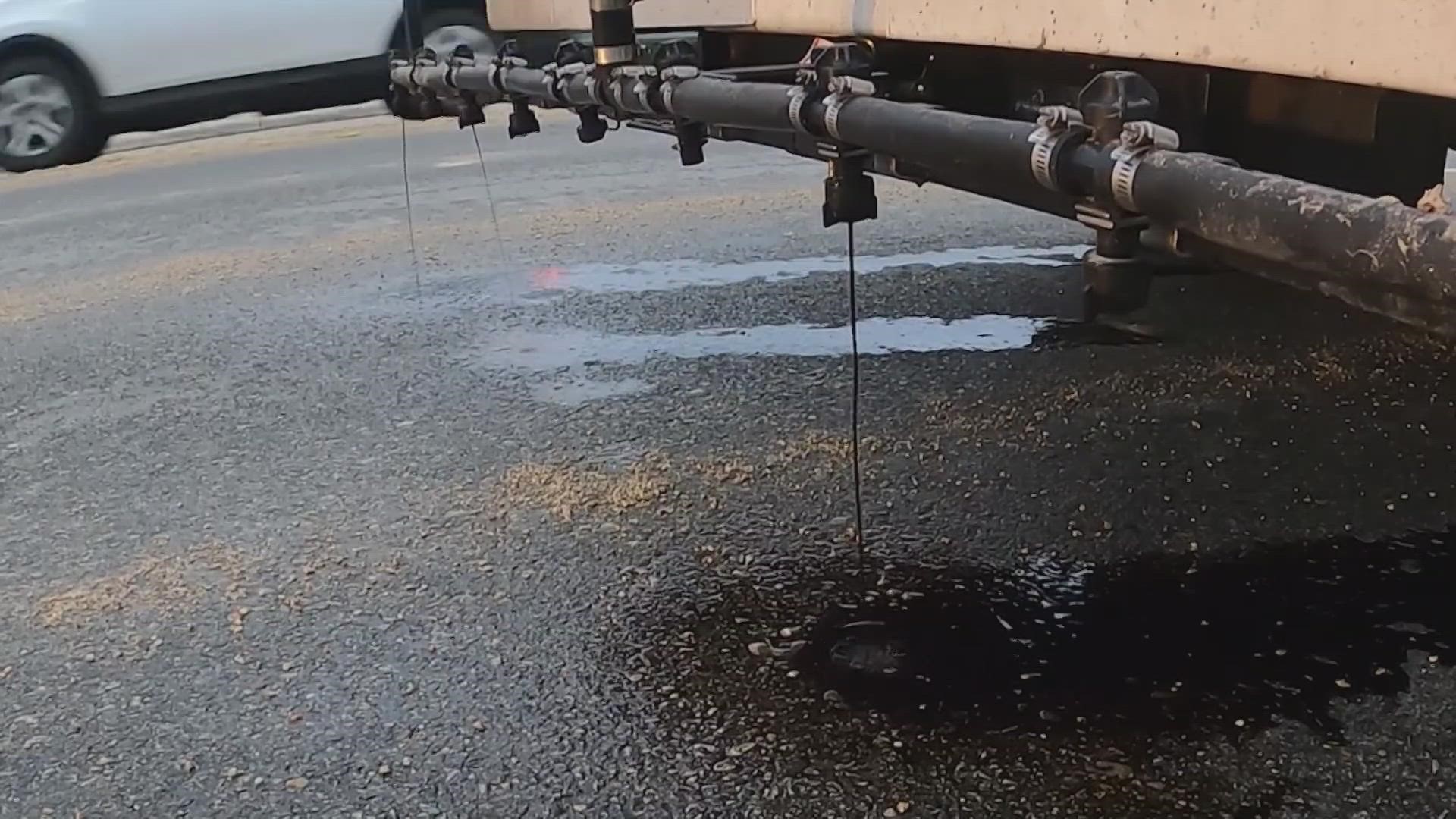SAN ANTONIO — Bexar County public works crews are treating roads and bridges with a new spray meant to keep precipitation from freezing on the ground.
The anti-icing fluid is made with a beet juice derivative. The mix is more cost-efficient and environmentally-friendly than traditional road salt or brine.
"It's totally organic, non-corrosive, and non-toxic," said Bexar County public works superintendent Carlos Sandoval.
The Texas Department of Transportation sprays roads with especially salty water, called brine. Rain or snow that mixes with the solution on the ground typically freezes at around 5 degrees Fahrenheit.
But when temperatures warm up, the treatment remains on the surface.
"Those components run off into... soil, groundwater, or to streams," Paul Bertetti, senior director for aquifer science and modelling for the Edwards Aquifer Authority. "Over time, that buildup of chloride can be detrimental to the ecosystem."
The extra salt disrupts freshwater's pH balance, harming plants and animals. Additional salt is unhealthy for people, too.
Fortunately, crews probably don't spray the mixture often enough to seriously impact San Antonio's environment, Bertetti said.
"The buildup is low. Down here, you only need it once every four or five years," he said. "It's not so much of a concern."
But smaller amounts of brine may still rust car frames or steel on bridges.
The new solution Bexar County workers are using is 80 percent brine and 20 percent beet juice derivative, the liquid left over when sugar is extracted from sugar beets. The resulting mix freezes at -30 degrees Fahrenheit, according to the solution's manufacturer.
The mixture is stickier than traditional brine, meaning gravel and chat rock traction treatments are less likely to bounce off the pavement. Because of this, the solution's manufacturer says a crew can cover 30 percent more ground with the same amount of material.
Crews can also use the treatment to melt ice that's already accumulated.
"We use that as a pre-treat and a post-treat," Sandoval said. "If the road freezes over, we can back over that with the (new mix) and it'll help de-ice a structure."
More cities across the U.S. are adding beet juice derivative to their brine sprays. The mixture is a dirty brown color and smells like dead fish.
Compared to alternative de-icing agents, including brine, beet juice derivative has the "lowest eco-toxicity of all of them," Bertetti said.
But there is no perfect way to de-ice a road or bridge, he added. When it runs into groundwater, beet juice derivative can create environmental problems of its own.
"That's also probably not much of an issue down here because we just don't need a lot of de-icers," Bertetti added.

